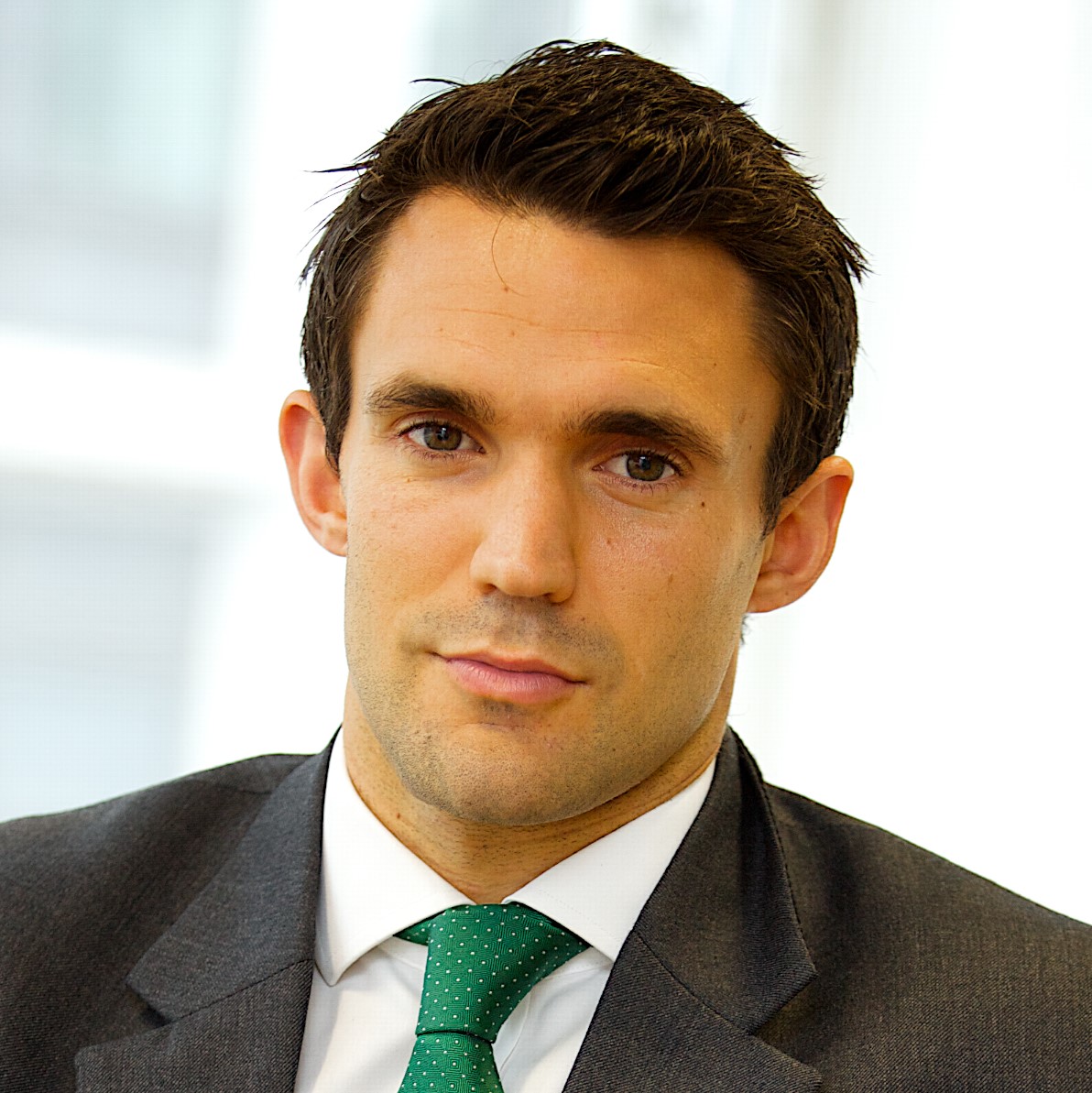
In the latest in our series, Portfolio Adviser hears from Pinnacle Investment Management managing director EMEA Ben Cossey (pictured right)
Which asset classes and strategies do you anticipate intermediary clients focusing on over the rest of the year and into 2022?
Inflation concerns are not going away any time soon and, consequently, this will be something clients are increasingly focused on as we head into 2022. Within equities, this will obviously have implications, given many investors have become heavily overweight to growth as a style. We are not necessarily going to see a complete reversal of the growth/value trend but I do think investors will be rewarded for a more balanced portfolio. Our Global Value affiliate Antipodes Partners has been seeing interest due to its ‘pragmatic’ approach to value, which gives clients exposures to undervalued companies across the growth spectrum, not just in low-PE parts of the market.
We have seen a refinement of attitudes towards China exposure – less exuberance, for obvious reasons, and a growing realisation that, while China remains a huge opportunity, increasingly a more nuanced approach to investing there is needed. Active managers must tread the right line between avoiding companies the CCP might punish, while avoiding those companies that are too intertwined with the party, given concerns on ethical issues and the fact political favour can change very quickly. Aikya Investment Management, our emerging markets team and our first UK-based affiliate, have navigated this dynamic well in 2021 thanks to their focus on companies with a positive social utility, and have been seeing significant client interest as a result.
From a geographic perspective, while I would be very reluctant to call for a change in regime in 2022, I find it hard to believe US equities can continue to outperform by such a wide margin versus the rest of the world. Europe and emerging markets, if viewed over the next decade, have to be better long-term places to deploy capital.
“Alternative asset classes and strategies offer a wide variety of options for investors looking for greater diversification and yield”
Should end-investors – and, by association, asset managers – be thinking beyond equity and bond investments? Towards what?
Absolutely – both for yield and diversification. The bond segment of a traditional portfolio has been under fire for a while now, with investors having to hunting for yield outside of traditional bond investments in private debt and other alternative yield sources. More recently, this has been exacerbated by growing concerns that a future bear market could see a positive correlation between equities and bonds, which would obviously destroy the very founding principles of the 60/40 portfolio and have potentially disastrous consequences for investors.
Alternative asset classes and strategies offer a wide variety of options for investors looking for greater diversification and yield. Exactly where investors should be heading towards depends on access and individual circumstances such as liquidity requirements and sophistication levels. Caution is needed – while the potential for alpha from active management in the alternatives space is arguably larger; so is manager dispersion, and so picking the right managers in this space becomes even more important.
Personally I find the alternatives space fascinating and love working with managers in unusual asset classes – for example, one of our affiliates, Riparian Partners, run a water-focused investment strategy, which is resonating with clients as both a source of uncorrelated returns but also from a sustainability perspective.
Given client and regulatory pressure on charges, how is your business delivering value for money to intermediaries and end-clients?
Pinnacle’s overriding purpose is to enable better lives for our clients through providing access to investment excellence. Inherent to this purpose is the need for us to provide good value for money to our clients, seen in the context of a fair price for the end-product – both in terms of return stream and characteristics.
We believe this is best achieved through boutique investment managers, who are majority owned by the investment professionals themselves. This gives a greater alignment of interest and helps ensure clients are paying for a product that is focused on returns, rather than asset growth.
Intermediaries and end-clients should always be assessing the price they are paying for funds and whether the price is consistent with the end-product they receive. Lower costs are not always better if the product or end-result is inferior – fees must be seen in terms of net client outcomes. I would argue selecting a fund manager or investment strategy is no different to purchasing any product – you must balance price considerations with quality, longevity and how effectively it will fulfil its intended purpose.
“Our industry has perhaps the biggest role for shaping real change on ESG issues and we must take this responsibility very seriously”
How much of your distribution is currently oriented towards ESG issues and sustainable investing? How do you see this evolving?
Nearly every interaction I have with European investors involves some discussion of ESG or sustainability – and I do not see this changing. Our industry has perhaps the biggest role for shaping real change and we must take this responsibility very seriously.
Where I do see an evolution is in the terminology used and the approach. ESG is far too broad a term and needs to be unbundled. Fundamental investors have always looked at governance – this is not anything new and should be treated separately.
Similarly, environmental and social factors are two different areas: how should we treat food manufacturing companies in emerging and frontier markets, which produce food in a highly cost-efficient manner to low sociodemographic consumers – but, as a result, use a lot of single use plastics and considerable energy in their factories? Or a tech firm, which is net-zero but has a questionable social utility? A more nuanced and granular approach is needed.
We have been trying to move the conversation we have with potential investors further on from just talking about policies, standards and processes – and try to highlight materiality: where has ESG actually shaped the portfolio? And where have engagements actually fostered change or improvements? Similarly, some of our affiliates are seeing ESG as an important alpha source, arbitraging the increasingly binary approaches to ESG and investing in companies that have been unfairly screened out or overlooked but which are making significant improvements or are playing a vital role in the energy transition.
In what ways do you think the experience of lockdown has permanently affected or changed the asset management sector?
COVID-19 has been the catalyst that has forced a permanent rethink with regards to the physical workplace and how we interact with clients – both of which were probably long overdue. It is bizarre to think how infrequently videoconferences were used ‘pre-COVID’ – going forward they will be an everyday occurrence for all of us. Similarly, lockdowns have shown everyone can work effectively from home and has destroyed the stigma that working from home – wrongly – had prior to 2020. Flexible and hybrid working, if used sensibly, can definitely be a positive for all of us and help us balance work with lifestyle, hobbies and family.
The asset management sector will undoubtedly travel less, both locally and internationally – something that is a good thing from an environmental perspective. I also believe this will be positive from an efficiency perspective for all of us, with in-person meetings still playing an important role but used more selectively.
“Through virtual distribution processes, end-investors and clients are enabled to invest in the best investment teams, regardless of geography”
How do you plan to balance face-to-face and virtual distribution? Have you identified aspects where one is especially better (or worse) than the other?
Given some of our boutiques’ investment teams are based in Australia, we have obviously benefitted from a greater adoption of virtual due-diligence processes and believe they are here to stay. Virtual distribution can provide clients with greater access to a wider variety of investment professionals who would be less likely to travel themselves, as well as cutting costs and travel time on both sides of the table. Through virtual distribution processes, end-investors and clients are enabled to invest in the best investment teams, regardless of geography.
That said, virtual distribution is obviously behind when it comes to building strong inter-personal relationships; and so I believe in-person meetings for those with distribution roles will always be essential. In a similar vein, during a manager research process, it can be harder for fund selectors to assess an asset manager’s culture virtually, and so greater thought must be given on how to approach this – and, for asset managers, how to clearly define and display your culture in a virtual setting.
We have tried to think about ways to do this effectively – for example, by allowing fund researchers to dial in to internal investment discussions to see how the team works with each other in reality, and by filming virtual office tours to show potential clients around our offices.
Did you manage a staycation or to get abroad this summer? Whereabouts and how was it?
I actually got married this summer, up in Staffordshire, and my wife and I felt very lucky to get away for a long honeymoon – something we had not thought would be possible earlier in the year. We spent a week eating fresh seafood and drinking rose by the pool in Santorini, followed by a very different week climbing in the Pyrenees – sleeping in bivvy bags at 3,000m surrounded by rock and snow; and eating freeze dried food every evening. It was the perfect combination to satisfy both our need for some relaxation post-wedding, but also our adventurous side.
What aspects of your own lockdown routine do you expect to continue with as people migrate back to office-working?
One part of that I really enjoyed, and which I am trying to continue, is spending more time outside. When our only socialising had to be done on walks or ‘al fresco’ dining, it forced us to be outside more, which I believe is both enjoyable and good for our mental health. I even interviewed candidates on long walks around Clapham Common during lockdown, covering some 29km in a day.
While suggesting a ‘walking meeting’ now to clients and colleagues might sound a bit too ‘tech start-up’ and raise some eyebrows, I will be trying to get outside more where possible – for example, walking and cycling to meetings rather than defaulting to public transport. Boris-biking along the Strand is probably not quite as relaxing as the mountain biking I was able to enjoy during lockdown but it is better than nothing.
More generally, what are you expecting from ‘the new normal’?
I would hope the accelerated evolution our industry has been through over the last two years is a positive one, and that we will see a healthier, more efficient and more inclusive industry emerge going forward, from which we can all benefit.










